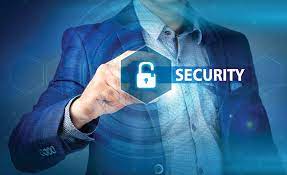S&P Global Ratings agency has downgraded Nigeria from stable outlook to negative. The rating agency confirmed this in a research update published recently.
But KPMG, another foremost global rating agency said,thinks otherwise, saying increased nonresident participation in domestic markets has been driven by the more-open, liberalized exchange-rate system since April 2017, as well as relatively attractive returns on CBN’s bills. “This has, in turn, helped to boost foreign-currency reserves”, said KPMG.
It further said, the prompt passage of the 2020 budget–the first time it has been passed before the start of the fiscal year in several years–also provides the government an opportunity to raise external funding through commercial issuances or concessional funding if required, supporting foreign exchange (FX) reserves.
All the same, S&P said, it was revising the outlook for Nigeria from stable to negative owing to a string of issues befalling Africa’s largest economy.
According to S&P, Nigeria’s economic growth remains weak, slower than that of several peers at a similar rating level. Weak growth, sizable public debt, and external pressures are all weighing on Nigeria’s creditworthiness.
Foreign-exchange reserve levels have fallen from $45 billion at mid-year 2019 to $38 billion at end-2019 and $36.5 billion in February 2020.
The Central Bank of Nigeria (CBN) has been issuing bills, which have attracted foreign investors.
“About a third of foreign-exchange reserves are derived from nonresident holders of these CBN bills, positions we consider to be vulnerable to a change in investor sentiment”, said S&P.
Looking from the sunny side, KPMG said, over its forecast period, export revenue could see some upside once production from new oil and gas fields comes on stream, while imports could reduce due to the current crackdown on smuggling of goods across Nigeria’s borders with neighbouring countries, as well as import substitution measures. This will help the current account move back into a surplus averaging close to 1.8 per cent of Gross Domestic Product (GDP) over 2020-2023, and thereby reduce downward pressure on reserves.
“There have been some outflows from nonresidents in 2019 in line with other frontier and emerging markets; however, the firm interest rates in the CBN market will likely ensure they remain attractive to nonresidents” said KPMG.
If nonresidents remain in the market, central bank reserves should stay broadly around current levels of five months of current account payments.
The prompt passage of the 2020 budget – the first time it has been passed before the start of the fiscal year in several years – also provides the government with an opportunity to raise external funding through commercial issuances or concessional funding if required, supporting FX reserves.



